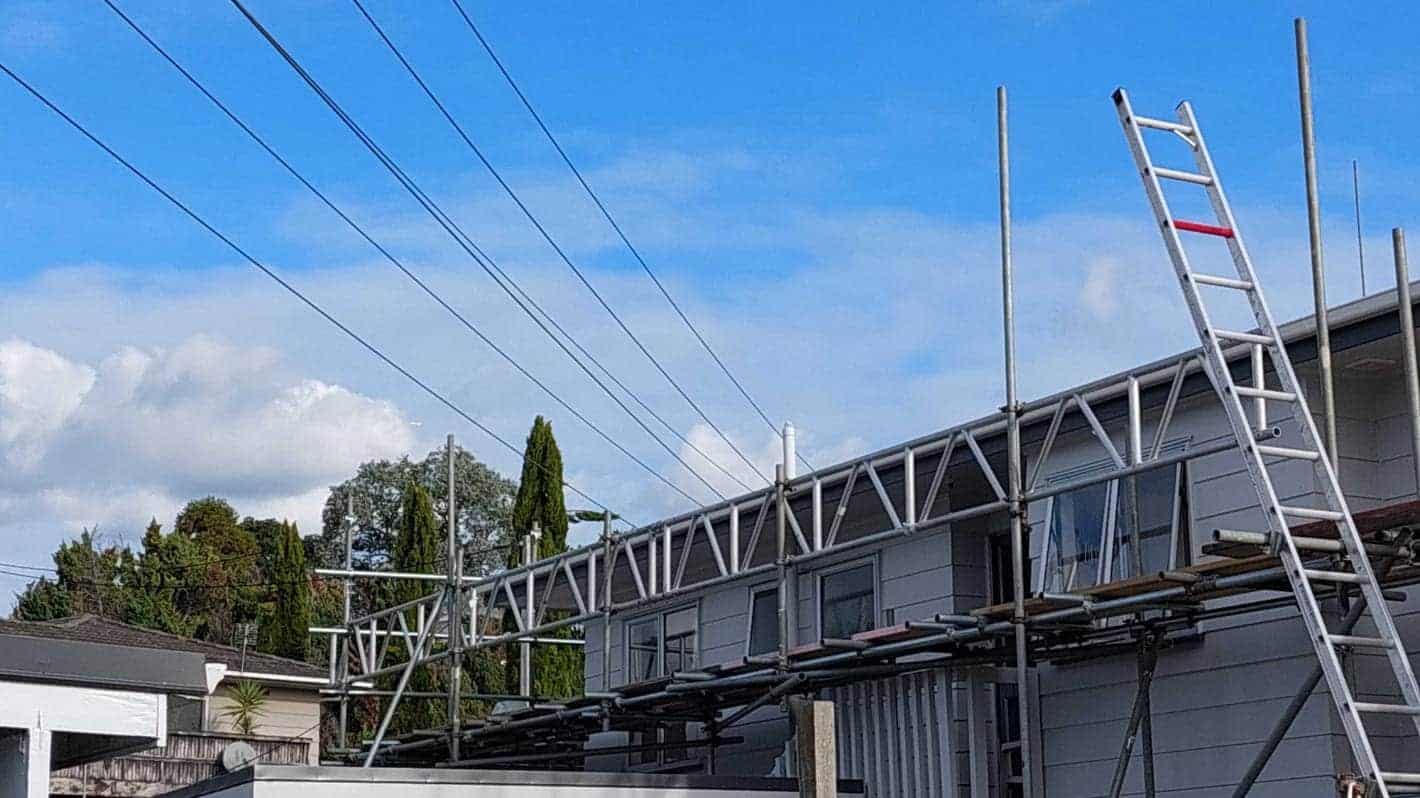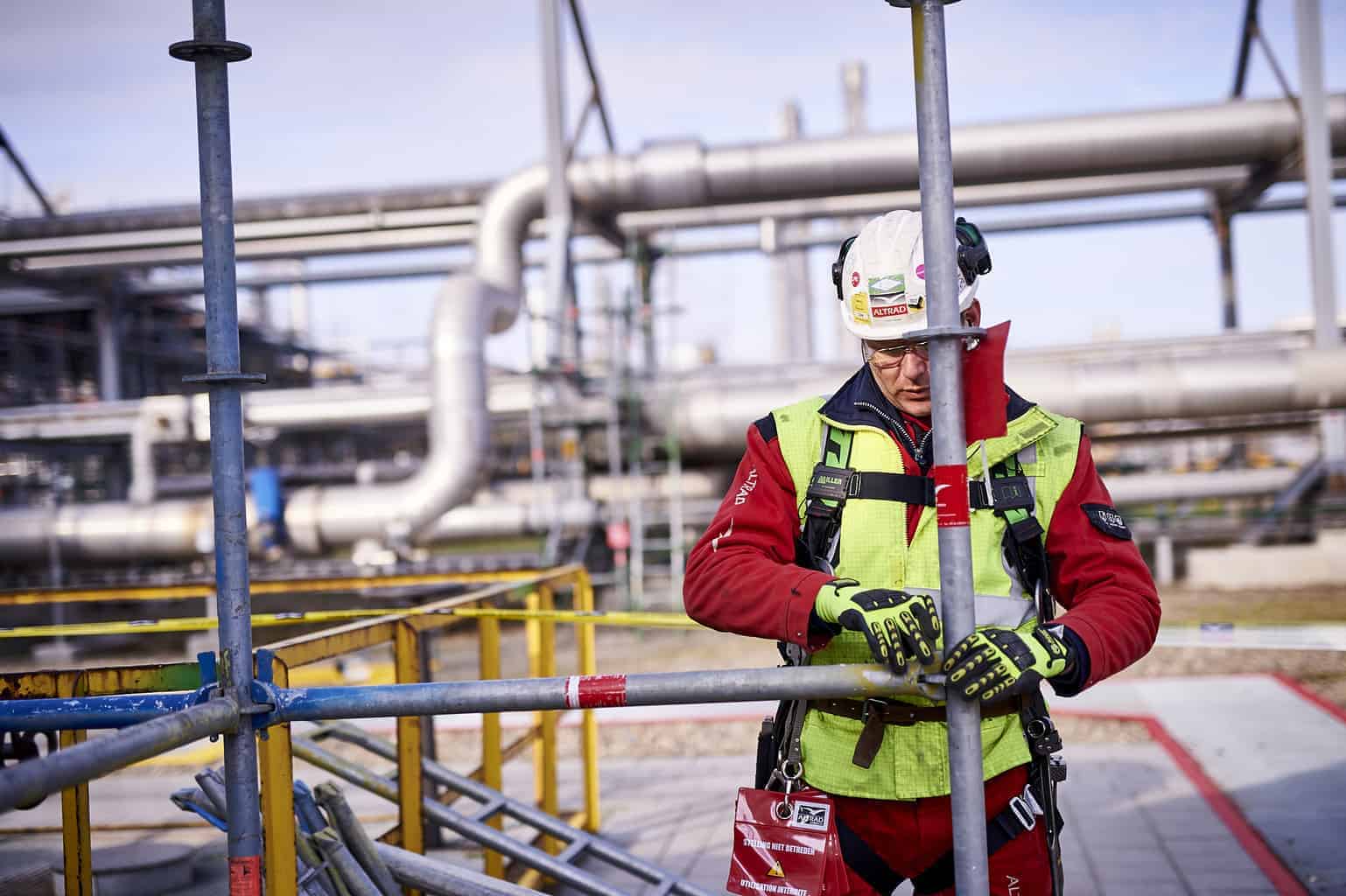A scaffolder who suffered a severe electric shock on-site in West Auckland, New Zealand has come off life support despite suffering horrific injuries.
Jahden Nelson, 28, remains in ICU at the Middlemore Hospital having suffered severe burns, the amputation of both arms and failing kidney’s requiring dialysis every two days.
Jahden is now breathing by himself and only recently opened his eyes oblivious to his injuries, though it’s thought medical staff would quickly inform him of the situation. The highly skilled scaffolder has undergone daily operations since the accident to remove burnt tissue and ward off infection.
Still in a critical condition, it seems he now faces months of recovery and even years of rehabilitation due to the seriousness of his injuries.
It’s thought he was holding a steel scaffolding tube when it touched low-hanging overhead lines. Witnesses saw a “fireball” erupt following a loud explosion when the electric current tore through Nelson’s body before he collapsed.

His Mother, Toni Paikea whose been sleeping in the hospital car park revealed her son received a severe electric shock as he took the entire voltage of the power line. She also explained he suffered a heart attack on-site after the incident.
She told the media: “He’s got severe burns throughout his body and both arms have now been amputated. He’s going into the operating theatre again today, as doctors are looking for burnt fibres which have remained in his internal system and are causing the infections.
“He’s needing support in every possible way. He’s on dialysis every second day because his kidneys are failing. I’ve offered to give him one of mine. The children – aged three, two and the youngest due to turn one this month, aren’t coping.
“They want their dad home. I know they’re hurting. I can see it in their eyes. He’s a loving father, and he wears his heart on his shoulder. He’s just a beautiful, humble man.
“As a parent, nothing can replace what’s lost. To have my son live through this and actually open his eyes and acknowledge me, it breaks your heart.”
Toni is demanding answers about why her son was permitted to work beneath live high-voltage powerlines without the power being disconnected at the Massey site.
Scaffmag has learned WorkSafe guidelines recommend employers identify electrical services and disconnect them if possible. A full safety analysis should also have been carried out by a certified person prior to work commencing with all workers property briefed.
The power lines company known as Vector confirmed a “close approach consent” was issued to Nelson’s employer, Supercity Scaffolding. A spokesperson said: “Vector’s role in this incident was limited to issuing a close approach consent before work began. These are issued in accordance with electricity safety standards to construction companies to provide minimum distances and safe work practices for working near power lines.
“This is a standard process in the construction industry and is required for anyone working next to power lines. It identifies the minimum approach distance from lines – this is the calculated safe working distance that provides worker protection when working near power lines.”
“The consent highlights the risks of working close to the lines and enables the company to work within defined areas. Once it has been issued, it is up to the company to manage within those parameters, maintaining safe distances from the power lines.
“Once this has been issued, it’s up to the company to manage within those parameters, maintaining safe distances from the power lines.”
A spokesperson for Supercity Scaffolding cited they could not comment on an ongoing investigation. What’s more they wouldn’t confirm or deny the power wasn’t turned off.
They had however, offered to provide the family with food vouchers, petrol, also offering to pay for a car park at Middlemore Hospital. In fact, Vector also offered supermarket and petrol gift vouchers, worth $1000, as a social media site has raised nearly $50,000 to help them get through the crisis.
Meanwhile local MP Phil Twyford is trying to ensure the family have legal representation to make sure there’s a proper investigation into what’s happened and there’s real accountability.
Jahden’s mother added: “No money can ever erase what’s just happened.
“What health and safety protocols were in place? I know, as an ex-business owner, you’re supposed to give a debrief on the work site as well as health and safety.
“My son has been in the industry since he was 16. I know in my heart with his knowledge he would have thought the power lines were turned off because the lines weren’t sleeved.”
Worksafe has said as the investigation is ongoing, they could not comment any further aside from stating: “WorkSafe is investigating an incident involving a worker who suffered significant injury after contact with power lines while dismantling scaffolding.”
Scaffmag has discovered another New Zealand scaffolding company owner who does not wish to be named said: “Really it shouldn’t have happened.”
“As far as we’re concerned there’s no grey area. You’re not going to put someone in the line of danger. We don’t allow workers within four metres of power cables when working. If lines were unsleeved you would expect them to have been disconnected while workers were onsite, or written confirmation provided that the site was safe.”
Toni believes the lines her son was working underneath weren’t sleeved. The investigation is continuing as Jahden begins his long battle toward recovery.


